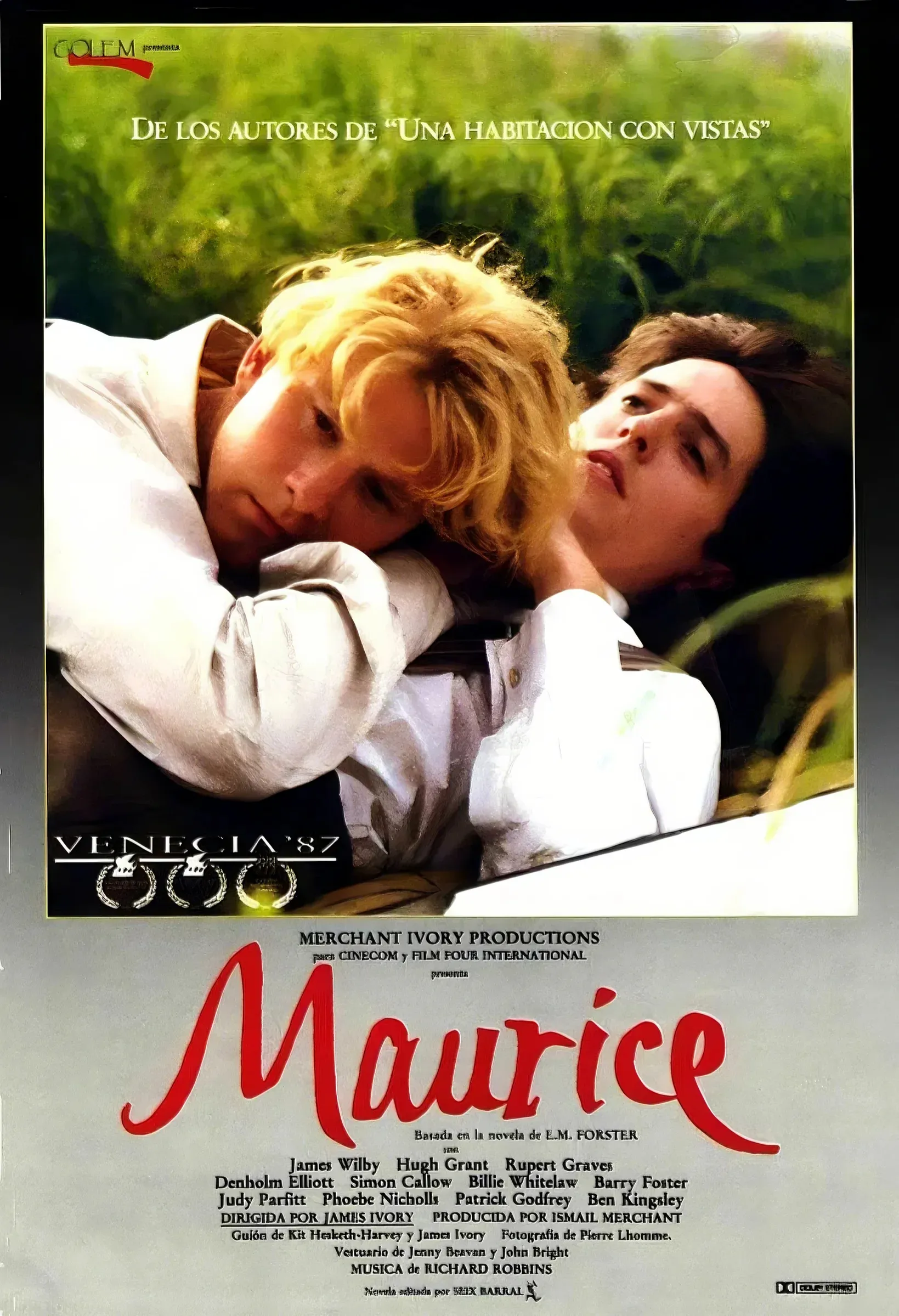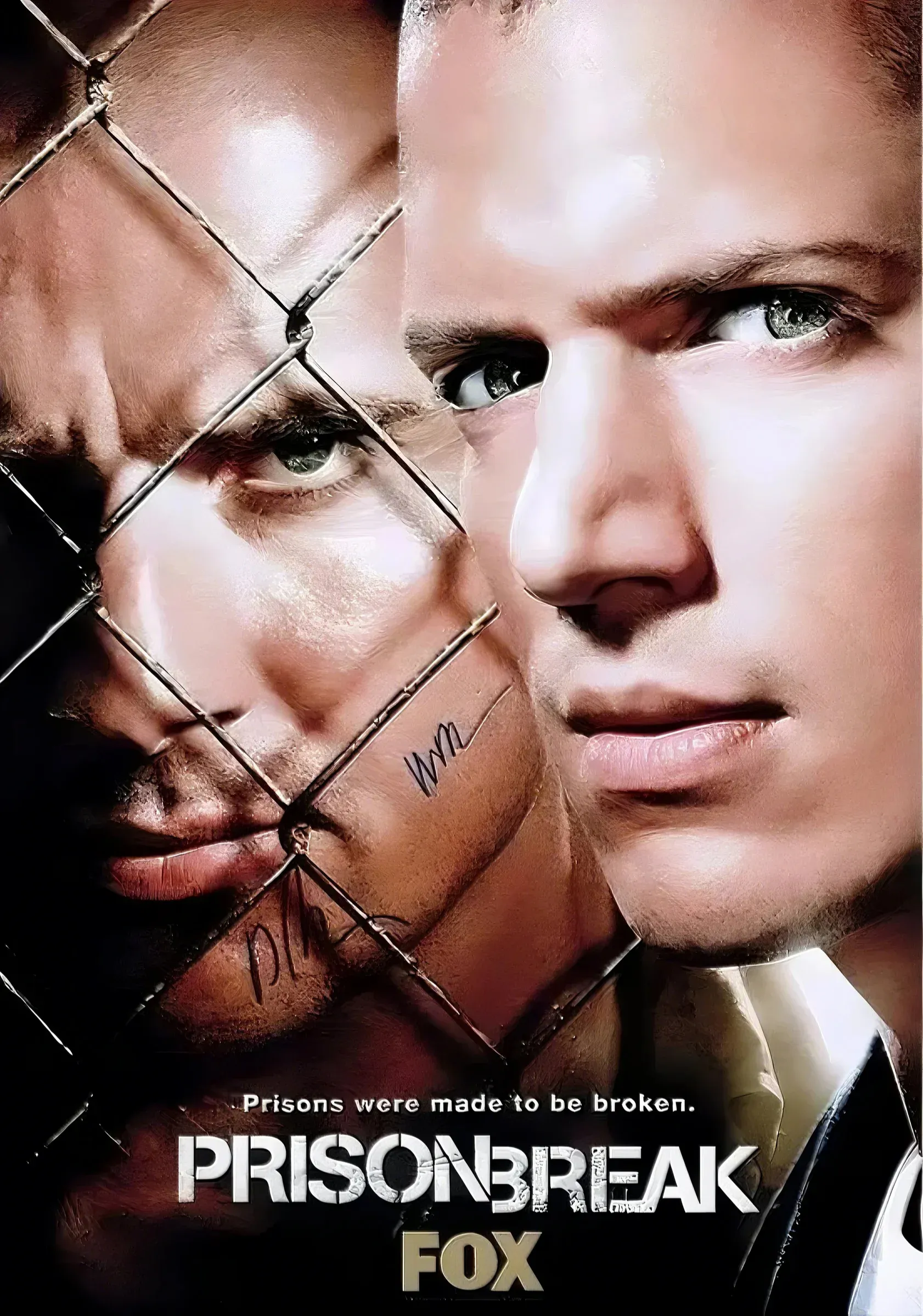Maurice (1987) – A Poignant and Groundbreaking LGBTQ+ Romance
Directed by James Ivory and based on E.M. Forster’s novel, Maurice (1987) is a beautifully crafted period drama exploring love, repression, and self-acceptance in early 20th-century England. Starring James Wilby, Hugh Grant, and Rupert Graves, the film delivers an emotionally rich and visually stunning adaptation of Forster’s once-suppressed novel, which was written in 1913-14 but only published posthumously in 1971 due to its bold depiction of same-sex love.
Plot Summary
Set in Edwardian England, the film follows Maurice Hall (James Wilby), a privileged young man navigating his identity in a society that criminalizes homosexuality. While attending Cambridge University, he forms an intense emotional and intellectual bond with Clive Durham (Hugh Grant), a fellow student. Their relationship, though deeply romantic, remains platonic due to societal constraints and Clive’s fear of the legal repercussions of homosexuality.
As they graduate, Clive succumbs to social pressure, ending their relationship and marrying a woman, leaving Maurice heartbroken. Struggling with loneliness and internalized shame, Maurice seeks medical "treatment" to cure his desires, including hypnosis—reflecting the era’s oppressive attitudes toward homosexuality.

However, his world changes when he meets Alec Scudder (Rupert Graves), a rugged and confident gamekeeper at Clive’s estate. Unlike Clive, Alec is unashamed of his desires and initiates a passionate romance with Maurice. Their love faces immense risk due to England’s anti-homosexuality laws, but in a bold and hopeful conclusion, Maurice chooses love over societal acceptance, deciding to leave his privileged life behind to be with Alec.
Themes & Symbolism
- Repression vs. Liberation – Maurice’s journey from shame and self-denial to love and acceptance is a powerful exploration of queer identity.
- Class Conflict – The contrast between Clive’s aristocratic world and Alec’s working-class background highlights rigid social divisions.
- Hope & Defiance – Unlike many tragic LGBTQ+ stories of the time, Maurice offers a rare happy ending, symbolizing the possibility of love despite societal constraints.
Performances & Direction
- James Wilby gives a deeply moving performance as Maurice, capturing his emotional turmoil and eventual liberation.
- Hugh Grant, in one of his earliest roles, portrays Clive with nuance, embodying the struggle between desire and duty.
- Rupert Graves is magnetic as Alec, bringing warmth and passion to the screen.
- James Ivory’s Direction – The film’s slow-burning romance and breathtaking cinematography immerse viewers in the repressed yet beautiful world of Edwardian England.
Final Thoughts
A deeply emotional and visually exquisite film, Maurice remains a landmark in LGBTQ+ cinema. Its unapologetic portrayal of same-sex love in a hostile era, combined with masterful performances and a rare happy ending, makes it a timeless and essential watch. 🏛️❤️🌿






